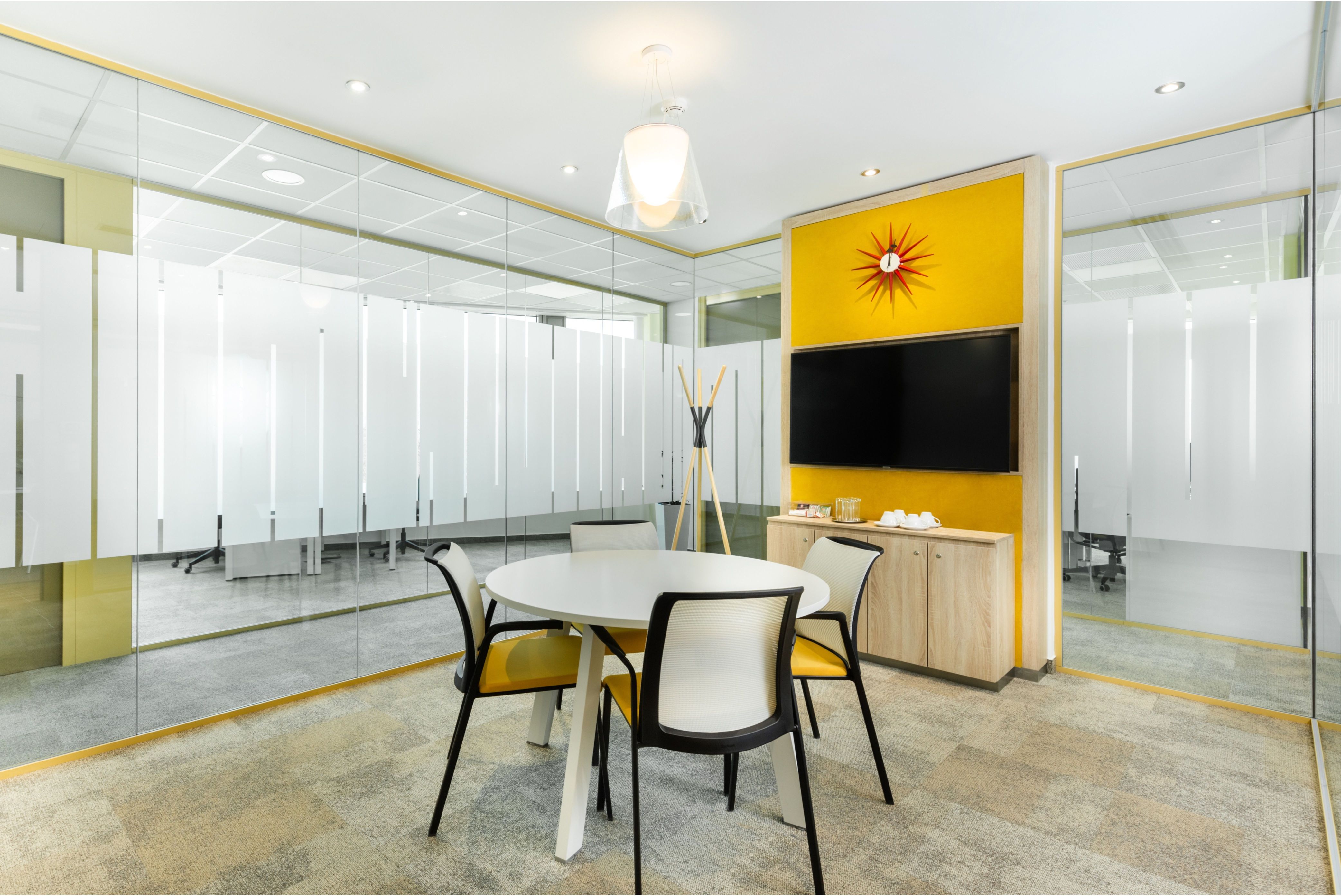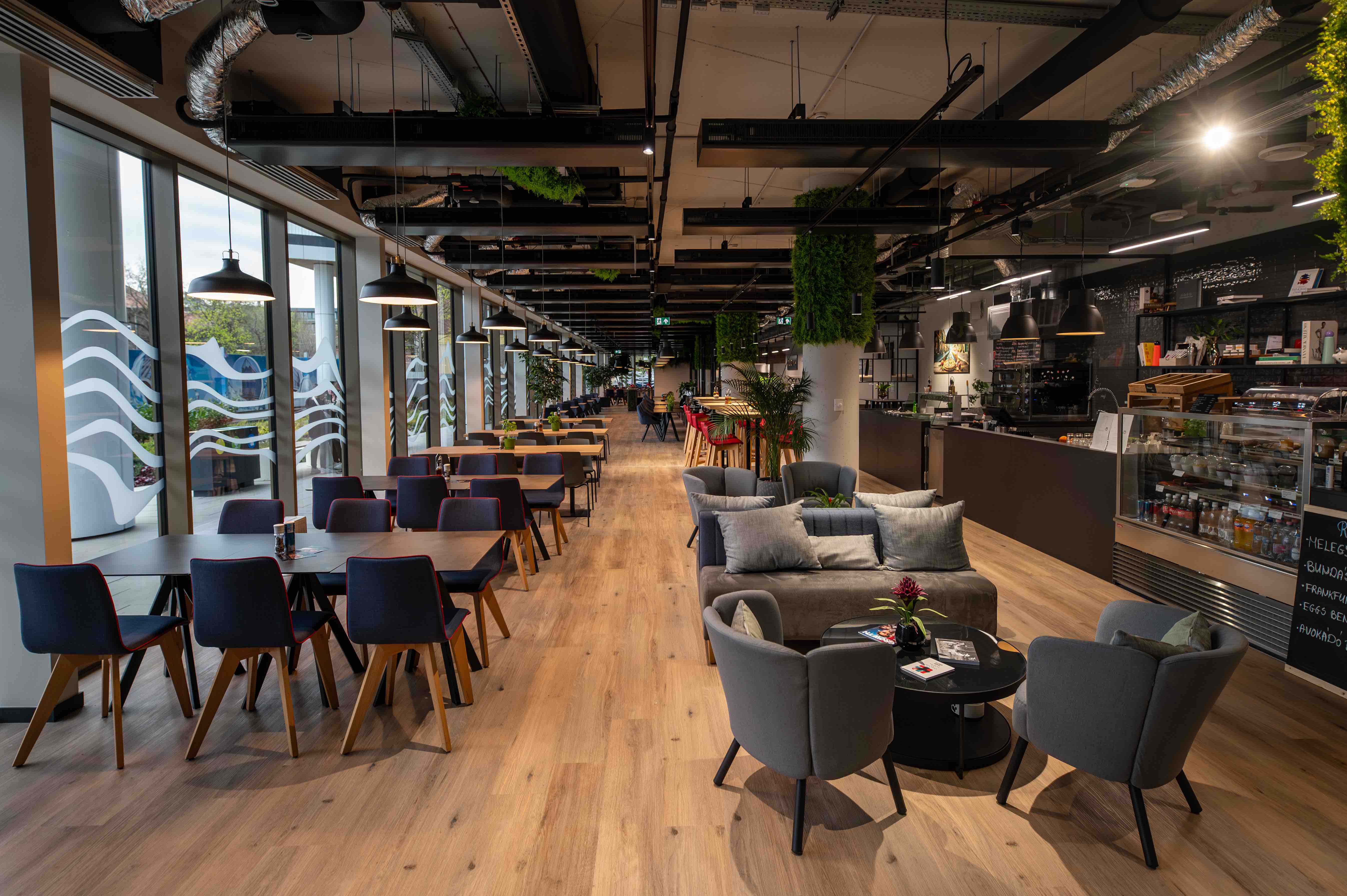Market Talk: How is the Office Market Developing?

The fundamentals of the Budapest office market are seen as strong with low vacancy and high occupational demand. The Budapest Business Journal spoke to a number of leading developers to ascertain their view on the market from development, location, design, sustainability and investment perspectives.
Office developers are delivering better located, more sustainable and imaginatively designed centers using world-class interior and exterior architects and PM/FM managers. Exit strategies are available for all class “A” developments, often with multiple bids. However, labor and development costs are rising and development plots have become more difficult and expensive to source.
As per the results from 2017 and 2018, the market is seeing robust demand, which can hardly be served by the supply. All of the new developments are mainly or fully let by delivery. Atenor’s Váci Greens is a good example of this: each of the existing buildings has an occupancy of 100% and the newest pipeline building, Building “F” is already 50% let, one year prior to its handover.
This trend is definitely continuing in 2019. The vacancy rate has decreased to 7.1%, which is the lowest yet recorded in the Budapest office market. I think that the office market is in a position to meet large tenant requirements, but the timing is crucial. Big occupiers have to start the search process at least 1.5-2 years prior to their moving date. Therefore preleases and/or built-to-suit projects can be ideal solutions.
Tenants need efficiency, functionality and spaciousness at the same time. This can only be created in modern, well designed buildings. Atenor realized very early on that the future will be as flexible and sustainable as possible.
Good project managers are now more important than ever. Atenor does not use general contractors, but has an in-house project management department who control all sub-contractors. Of course, we strictly follow external regulations, but in the same we have our own internal regulations, which are continuously being improved.
The typical Hungarian landmark property has a downtown location, could have impressive historical heritage and/or a Danube view, etc. I think more landmark projects should be created and for this developers has to identify and create new prestigious areas, use world-class building design and creative positioning.

Nikolett Püschl
Development and leasing director
Atenor Hungary
The supply side of the office market is definitely in a position to meet large tenant requirements but only in the long-term. Budapest has never been a prelease market but during the last couple of “dry” years of supply with increased demand, preleases have become a more significant part of the market. When companies are looking for large offices for an immediate move, they have very few opportunities.
Due to the landlords’ market that has evolved in recent years, the biggest change is probably that tenants have learned to plan ahead. Although it is very difficult to properly plan a company’s life for even the upcoming three years, tenants have to prepare a real estate strategy that supports their operation. Another demand change is that the focus of tenants is very much more on the employee and their day-to-day satisfaction with their office environment. Landlords are, therefore, designing their offices with more of a focus on well-being.
With regard to the choice of architects and designers, the most important criteria are – as always – quality and past experience, but these days the biggest question is availability. As the construction market is overheated, it is not easy to find good architects who can accept an assignment with a strict timescale. I believe that all new buildings should be somewhat landmark in a way that is not only modern, functional and flexible but also respects and adds to the general look of the city. Fortunately, we can see more and more examples of well designed “landmark” buildings in Budapest.

Csaba Zeley
Head of asset management
ConvergenCE
Requests for Proposals (RFPs) of large tenant requirements are usually circulated 12 months before commencement. There will be significant new stock on the market this time next year to serve these requirements; however, if a 5,000 sqm tenant would like to move into contiguous office space this December, it will meet with very limited possibilities.
Besides the fact that price and location are still the two dominant decision-making factors, there is an increasing need for “human elements” to serve the comfort and wellbeing of employees. This can mean a warm welcoming common area which gives a living room feel to the tenants rather than a lobby, but it can also mean services on the spot that make the everyday life of tenants easier. CPI has recognized this need and is one of the pioneers in this respect with its “Human Innovation Program” across its office portfolio.
Suitable office development sites are becoming more difficult to source and potential office location hubs are, therefore, shifting into new areas of Budapest. Office planning and construction regulations are very inefficient processes and vary from district to district. A comprehensive regulation platform should be introduced with online availability.
Budapest has very few modern landmark buildings and thus I would support a move to have more. A landmark building carries long-term design and functional values which distinguish it from its environment in a positive way.
Beyond Budapest, Debrecen and Szeged are the two location where I see possibilities to establish a sustainable, functionable office market outside of the capital.

Mátyás Gereben
Country manager Hungary
CPI Property Group
Both existing and new projects in the pipeline can host large requirements, but the leases have to be flexible in terms of location. The downtown and Váci út office corridor are almost fully rented, where office buildings have reached their maximum capacity. We can see that other parts of the city, for example the dynamically developing District IX is also saturated; our Office Campus building is almost full.
New trends like wellbeing are for sure market drivers, as well as the amenities in the surroundings of the properties. As the existing buildings in our portfolio are located in established locations, they can be competitive. There is a lot to keep in mind when looking for a new office and the office itself has gained importance regarding attracting and keeping employees. Therefore, not only the numbers are interesting, but also the creation of human relationships, social experiences and work-life balance within the office buildings. It is more and more important for tenants to have a good time in the office building, and we make their everyday life easier with our “myhive” services, so the employees like to work there.
Since “myhive” has been introduced to the market, we can clearly see that in practice that different tenants compositions within the office buildings require different services. The regular events – business breakfasts, client parties, concerts, yoga classes or even the farmers’ markets – are very popular. When we worked on the concept and design of “myhive”, we decided to work closely with architects experienced in the hotel segment, as the warm and welcoming atmosphere in hotels was very important for us.
A functioning office development market could emerge outside of the capital but Budapest will remain the main focus for developers for the next few years. There is some initiative from the developer side and also SSCs have started to move to academic cities, like Szeged and Debrecen.

Viktor Nagy
Hungary country manager for operations
Immofinanz
We see office demand and take-up being matched by supply. If you look at the way the market has progressed in recent years, there has been a lot of development and growth but also a lot of take-up and we see a good balance between requirements for new, more modern and different types of space and the ability of developers to deliver this.
The quality and specification of the buildings we produce are built to the highest international standards in every sense. These include the Telekom building, which is the largest single office building in Hungary on a long-term lease to Magyar Telekom, the Ericssson building, where it has both its office and research and development functions, and the evosoft (a Siemens subsidiary) headquarters that is currently under development.
There is also a lot of cross over between the international markets and Hungary in terms of the people working in the aforementioned buildings. They are modern, environmentally sound, very efficient buildings, in terms of the use of space and environmental footprint. They are built to a very high quality with regard to internal finishings, but equally important is the building infrastructure.
The nature of space and the way people use it has changed significantly; there is a lot more flexibility in the offices, a lot more collaborative space and spaces where there is a focus on encouraging creativity. In this way there is a focus on flexibility, so it is no longer the case that everybody sits at the same desk, in the same office and behind the same closed door, but rather there is a lot of movement within the office.
A building is a holistic or single unit and the architects who design our exteriors and interiors are the same. When we have a major tenant, we coordinate very closely in terms of their needs within the building, initially when we make an offer and subsequently when we design the exact specification.

Noah Steinberg
Chairman and CEO
Wing
The supply side of the office market is in a position to meet large tenant requirements provided these tenant requirements reach the market sufficiently ahead of time. Budapest has sufficient developments in the pipeline to accommodate sustained, robust demand in the years to come. However, construction works tend to be behind schedule, due to the lack of capacity in the construction industry: sufficiently early appears to be increasingly early. Our recommendation to large tenants is to start their quest for space in good time by identifying from the outset those developments that meet their quality criteria and that are capable of timely completion.
Corporates are attaching growing importance to employee loyalty in order to boost productivity, customer loyalty and ultimately their revenue. They realize the relative importance of the leasing fees of real estate on their corporate balance sheets in comparison to the potential upsides of well-motivated, well-housed employees.
As developers, we have already focused for many decades on the quality, energy performance and sustainability of our developments and we have been systematically submitting these to independent assessment and certifications like BREEAM for more than ten years. But it takes more than this to deliver developments that exude an appealing, Zen-like ambience and which can meet the human expectations of the users of an office building. This requires refined, well thought out architecture, a well-balanced mix of functions and an offer of amenities in the immediate vicinity, if not in the building itself.
Importance is given to aspects such as optimal daylight gain and clear height on the work floors, easy access to the open air and greenery and a flexible workspace that is easily adaptable to a wide variety of work organizations and high comfort levels, even at dense occupancy levels.

Christophe Boving
General manager
Codic Hungary

SUPPORT THE BUDAPEST BUSINESS JOURNAL
Producing journalism that is worthy of the name is a costly business. For 27 years, the publishers, editors and reporters of the Budapest Business Journal have striven to bring you business news that works, information that you can trust, that is factual, accurate and presented without fear or favor.
Newspaper organizations across the globe have struggled to find a business model that allows them to continue to excel, without compromising their ability to perform. Most recently, some have experimented with the idea of involving their most important stakeholders, their readers.
We would like to offer that same opportunity to our readers. We would like to invite you to help us deliver the quality business journalism you require. Hit our Support the BBJ button and you can choose the how much and how often you send us your contributions.







